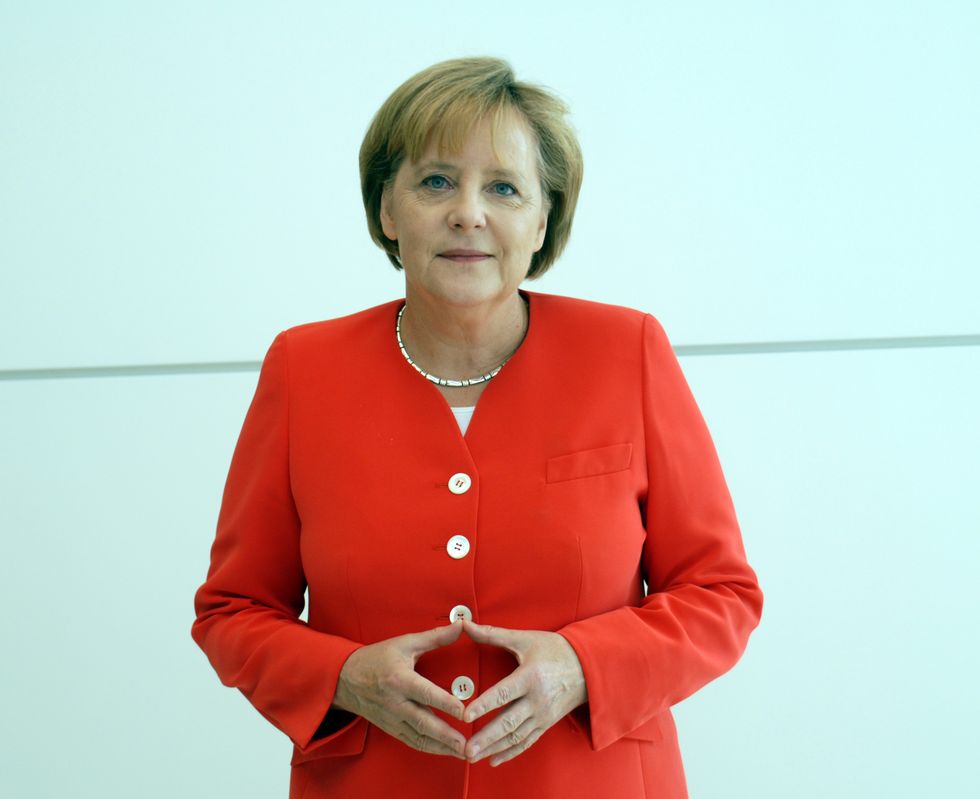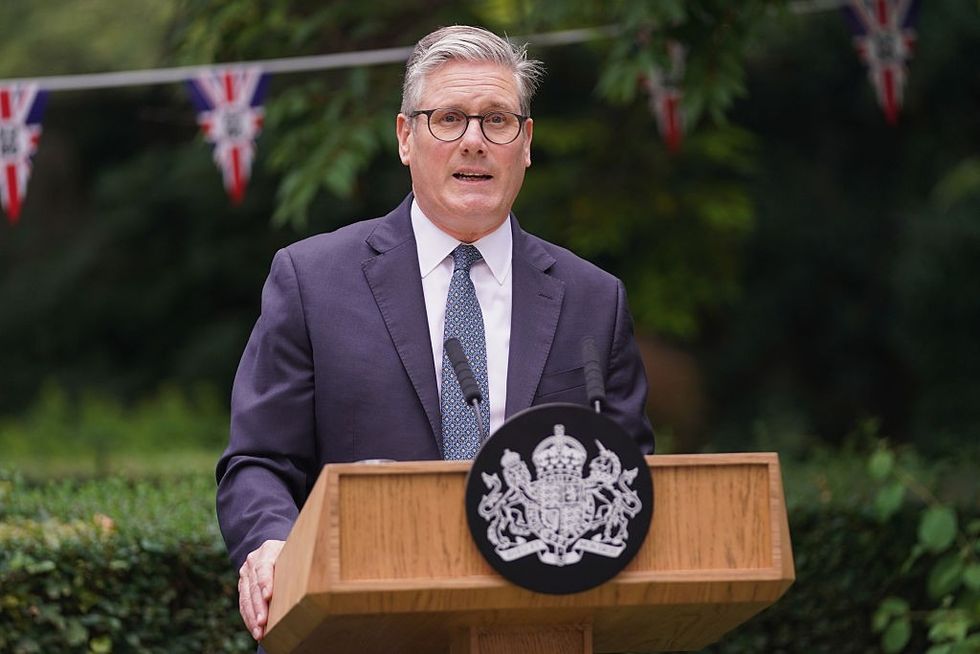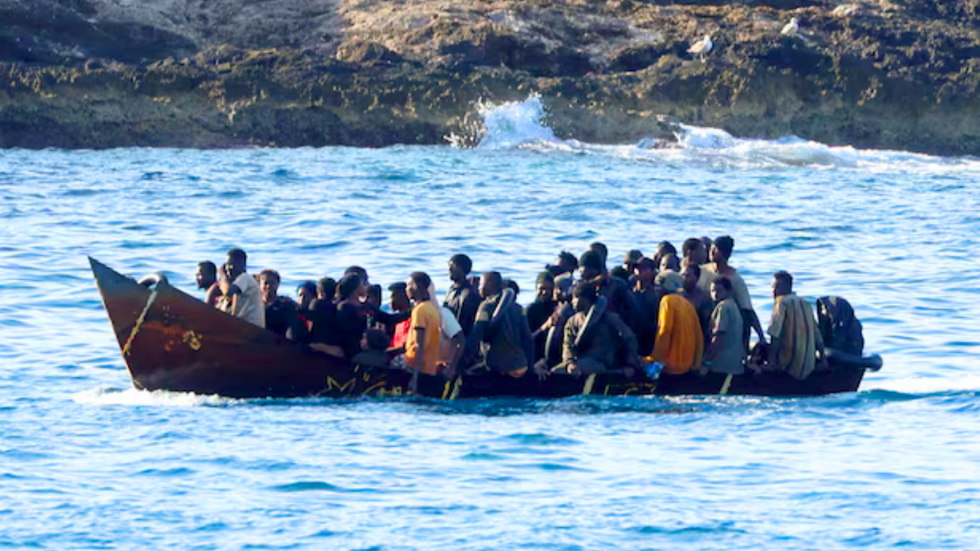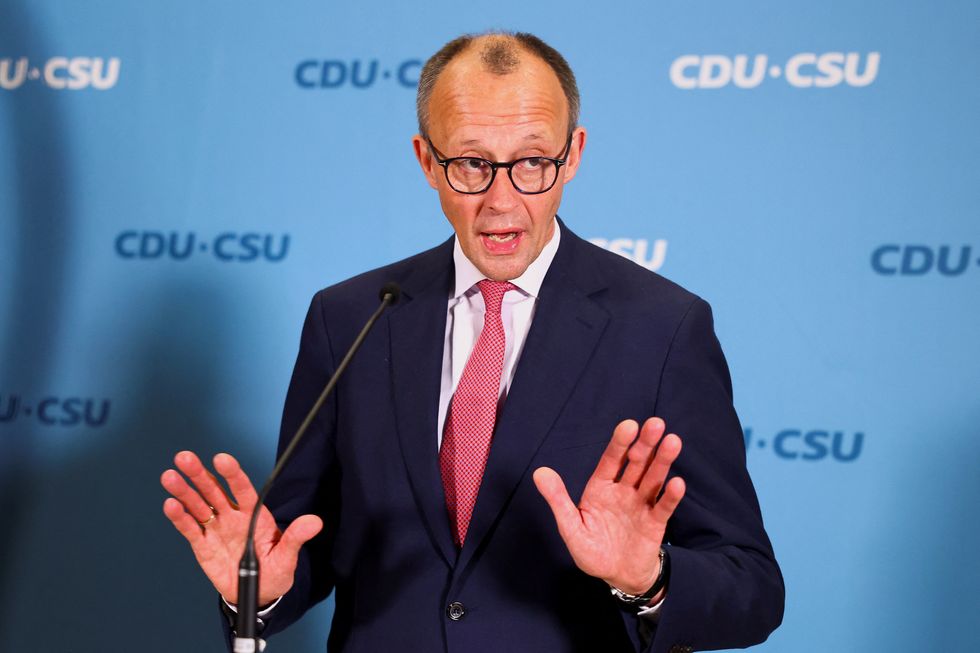



Once a continent which had welcomed asylum seekers with open arms, European countries have responded to public anger by cracking down on incoming migrants, putting Keir Starmer and Labour to shame.
While a decade ago, countries like Germany, Sweden, Denmark and other European nations were soft on asylum seekers, the countries have since tightened their border controls and become stricter on asylum seekers.
Prosperity Institute think tank's Guy Dampier said countries a decade ago were more sympathetic to asylum seekers than now.
"Back in 2015, people were extremely sympathetic to the migrant crisis," he told The Sun.
"The famous phrase from 2015 is Merkle's 'Wir schaffen das' - we can do it."
However, Mr Dampier said that there had been a "growing realisation" from Europe "that they can't do that".
"And not only can they not do it, they actually don't want to do it."
He added that it came from changes "that people have never voted for and don't want".

Former German Chancellor made the comment about welcoming asylum seekers in 2015
|WIKIPEDIA COMMONS
With Europe tightening its rules and borders, many in the UK are urging Sir Keir to look towards Europe and follow suit.
It comes as more than 50,000 people have crossed the Channel since Labour won the General Election last year.
Home Office figures have also indicated that more than 170,000 people have made the crossing since 2018.
It was revealed on Monday that the Government is expected to tighten its rules around asylum seekers bringing their families to the UK, aligning with its neighbours.

Keir Starmer has been urged to follow Europe in tightening its rules around asylum seekers and Britain's borders
| GETTYWith attitudes changing towards asylum seekers across Europe, far-right parties and right-wing support have grown substantially.
Venezuelans, Afghans and people from Bangladesh have made up the top nationalities with the largest number of asylum seekers in the first three months of this year.
And, the tighter restrictions seem to be successful.
According to the European Union border agency Frontex, crossings into Europe are down 18 per cent in the first seven months of this year in comparison to the same time last year.
Those making the perilous journey from Tunisia and Libya to Italy, known as the central Mediterranean route, is the busiest, with almost 36,700 people making that trip.
Human rights groups have warned that cracking down on migrants risks ignoring the abuse they face from criminal gangs.
Those journeys made by asylum seekers have been costly.
The UN reported that more than 2,200 people died last year attempting to cross the Mediterranean.

Italy has signed agreements with Tunisia and Libya in a bid to tackle asylum seekers arriving
| REUTERSAs borders shut, different routes are mapped out and the trip from the west African coast to the Spanish Canary Islands is becoming popular.
Since Colonel Gaddafi was killed in 2011, gangs have prospered in Libya.
Royal United Services Institute's Dr Andi Hoxhaj told The Sun that "over 90 per cent of those that organise the crossings are criminal groups," he said.
"They will have to get some sort of guarantee or assurance that when they get there, they will not get caught. It will depend gang by gang, or network by network, wherever they have the strongest link."
Dr Hoxhaj said that Libya had become "pretty much impossible to govern" and that made it "very difficult to tackle organised crime".
Europe has been forced to act.
Sweden has been known as a "progressive paradise" and welcomed many asylum seekers in 2015.
However, ever since its centre-right government came into power in 2022, it has tightened its borders.
Just 6,250 people were granted asylum in the country in 2024, which pales in comparison to the 84,200 let into the UK.
As for Germany, the country has radically changed its perspective from a decade ago.
Chancellor Friedrich Merz has promised to crack down with police turning away almost every single asylum seeker at the border.
That also includes sending migrants back to Afghanistan on flights from Munich Airport.

Friedrich Merz has taken a hard stance on migrant arrivals
| REUTERSGreece has taken one of the toughest stances out of any country, with the European Court of Human Rights finding it guilty of conducting "systematic" pushbacks of potential asylum seekers attempting to enter by sea.
Denmark's centre-left Government has taken a surprisingly hard stance, with the country's Prime Minister putting forward an objective to reduce asylum claims to zero.
It has also seen the country revoke asylum status to people if their home country has been deemed safe.
In Poland, Karol Nawrocki won the Polish Presidency, campaigning on the slogan "Poland First".
It has seen its border with Belarus heavily militarised to stop people from illegally entering its country.
People looking to enter the EU are able to arrive in Belarus on tourist visas, however, they are bused to the border.
It prompted Poland to suspend asylum claims from its eastern border in March.
Italy has taken a tough stance as well, ever since right-wing Prime Minister Giorgia Meloni came into power with the country fighting to process asylum seekers offshore in Albania.
Portugal has stifled any attempts from gangs sending boats from Morocco to the Algarve region with deportations conducted quickly and detention centres being built to combat the arrivals.
Only eight boats have landed on the coast since 2019.
